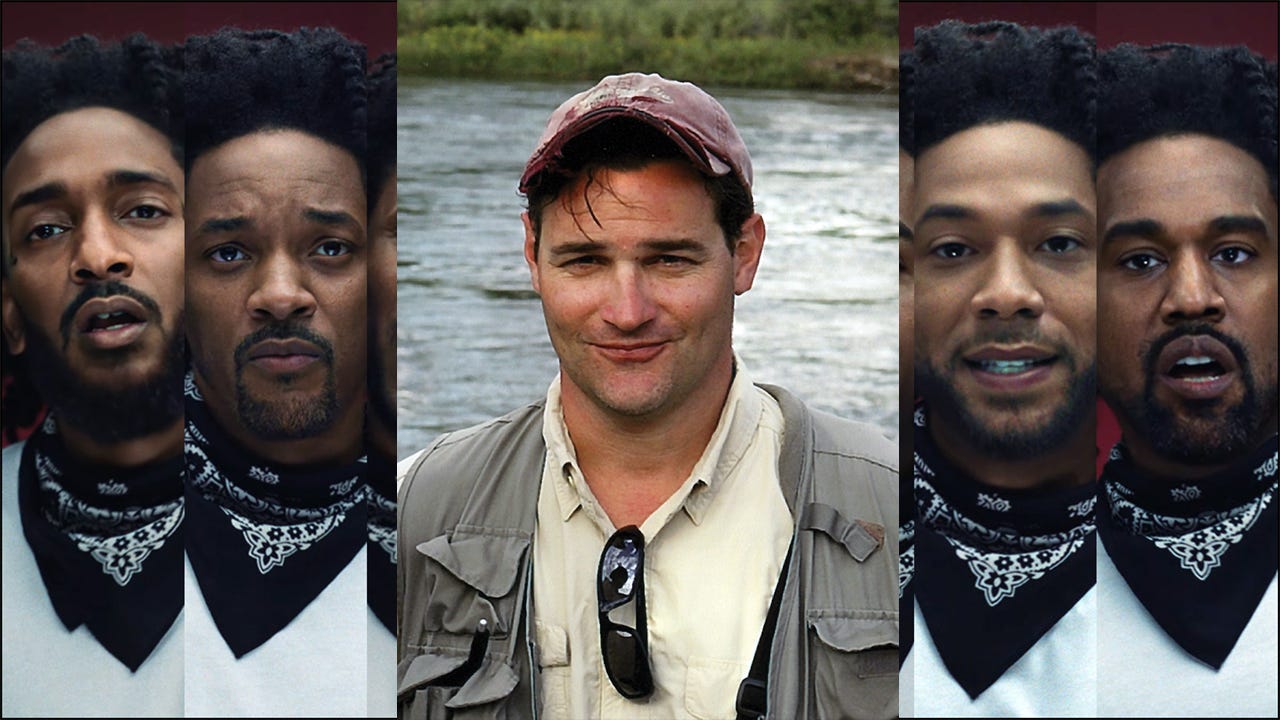I would like to share something before I proceed. If you’ve ever glanced at the website, you probably haven’t noticed the new section that I have that has all of my writings outside of this newsletter. I’ve been writing for almost eight years, and I started out as an editor for a small university magazine that leans right-of-centre. Because of the high amount of effort it takes to run a publication, ranging from the design to the overall content, I devoted much of the energy I had to remain before I finished my degree to make it more than readable. it motivated me to venture out to other outlets. Most of the ideas that I’ve pitched were roundly rejected for outlets that I want to write for. Otherwise, I would have had a good shot at becoming a professional pundit.
This taught me valuable lessons about internet writing. The first lesson is that, of course, editors will pick and choose things that fit their editorial judgements, so throwing drafts left and right does not solve the problem of having it not be published. The second is that substantial commentary takes a degree of craft, but it’s tested against audience and platform expectations. Once you find your audience, maintaining and growing them means that possibilities become calculated. With platforms, it’s a bit of a different story. I had this Substack for more than two years, and with the probability of being paid to write being lucrative, it is something that my dreams cannot look away if I do not keep the number of bylines consistent. But the reality is that this path is still less likely. One can complain whoever is more popular on this platform is because they’re in it for a gift, which is far from true. Even some of the dumbest voices are genuine in their expressions.
Lack of Taste has published less than fifty pieces of content this year. That doesn’t seem like much, but I believe that it is the quality that counts, rather than the quantity. This month saw two articles that I have got published elsewhere, and they are both in the list of favourite essays that I’ve written. Here they are:
Film Club with Jasmine Hu Hollingshead
I am including an interview I did with Jasmine Hu Hollingshead because it was a lot of fun. She first came to my attention with a great article she wrote about the movies Turning Red and Everything Everywhere All At Once, but when I did a Q&A with her, the perspective she has brought to the table, particularly on Asian American cinema, is more than what the average outlet would demand.
The current wave of Asian-American cinema seems to specialize in the tensions between the family, and what I find striking is that it reaches the exact same conclusion: that we're uncomfortable with our parents, and they are uncomfortable with their parents as well. As you've mentioned Turning Red and Everything Everywhere All At Once focus on that, and so do The Farewell and Crazy Rich Asians. There's a meme that compares that with the storytelling of cinema in other Asian countries, which is far more diverse than that. Do you think that there is a potential for Asian Americans to expand their capabilities of expressing themselves beyond this trope?
Yes, I hope so! It’s not that Asian-American filmmakers shouldn’t explore family conflicts. Family is a rich, evergreen theme. It’s the way in which they sanitize their own culture and identities to be palatable to liberal sensibilities that I take issue with. They feel like college application essays.
Ultimately, the discomfort toward the family probably conceals a greater discomfort toward the self. I empathize. It’s hard to inherit a cultural lacuna and figure out who you are. But you can’t look towards this incredibly market-driven “Asian American” diaspora narrative where it’s all “grandmother’s weathered hands grasping a wooden bowl under the mango tree” to solve that. This cloying fantasy of the subtropical matriarchal homeland does not exist!
Luckily, the great blessing of being an immigrant is that you have a rich, foreign, secondary worldview to draw upon. Everything is so insular today, so it’s vital to read and watch stuff from another time, another place, another sensibility. It’s always telling that those who most bemoan a lack of Asian American stories also seem to be ignorant about the incredible richness of East Asian cinema.
Project X At 10
I wrote this for PopMatters commemorating how this found footage party film, released in 2012, was the last of its kind: a politically incorrect and brash film that you can’t look away from but captures the zeitgeist of being in the moment. I’ve only realized that the piece blew up on Reddit, and there is a criticism that I described the events as consequence-free. Yes, there are consequences for each of these characters, but I would think it would have been framed as more severe if anyone else outside of the film has done the exact same thing. I felt that the three characters were left off the hook. Still, I think this film is quite fascinating in how it combines the frat hijinks with found footage, which I think anyone, especially when you are a teenager at that time, that it is almost impossible to pull off a party this huge, once everyone tries to catch that lightning in the bottle.
Matt Labash’s Film Club(s)
Another Film Club, this time with my favourite journalist working today, Matt Labash. In both interviews, I noticed an overlap: the depiction of the modern man, both by an established media that spends so much time needlessly deconstructing them and an alternative media that exploits their primal instincts. So I talked to Matt about the alternate life that magazines, whether it’s GQ or The Atlantic offer:
I love magazines. For me, buying a print issue is like buying a comic book. You wrote an op-ed in The New York Times about the substantive decline of men’s magazines, around the time when GQ had a special issue about being a man, which nowadays is hardly traditional. I find the genre of men’s magazines fascinating because, in its heydays, they often border on acceptable tastelessness. I remember when GQ used to run scantily clad covers of female celebrities, but not anymore. Esquire used to have a “Sexiest Woman Alive” feature every year, but now their main attraction is a left-wing blogger. Every article from those outlets always has to conform to the celebrity’s ego, rather than permitting the reader to appreciate the beauty of these people, because that’s clearly part of their personality, alongside whatever talents they have. The writing back then was tolerable and wasn’t all about spotting potential crypto-fascists. How the hell did it come to this?
Sorry man, I hate comic books. But I’m with you otherwise, brother. I miss hot supermodels and overwritten stories on all manner of subjects. Magazines were almost……aspirational. You were entering another world. I still subscribe to them out of lifelong habit, but I barely feel like I need to check in anymore. Unless I aspire to be some neutered house pet policing actual writers for using the wrong pronoun, while body-positive editors assure me that I should be attracted to 300-lb models in groaning yoga pants. It’s all a stupid scam and isn’t fooling anyone. Except maybe the people who work there, and I doubt even them. The last gasps of a dying sphere. The world is often a sad place. And magazines have become an even sadder version of an already sad place. I mean the ones that still exist – because many have ceased to exist. Or else they’ve cut back their publication frequency so much, that they might as well go under. And I don’t say any of this with joy or smugness. I say it with deep and genuine sadness. Because I, too, have always loved magazines. Many of my favourite writers came out of them. And I worked in them for most of my life. Still do, sometimes. Magazines were once a great place to do work that had immediacy, but with 360-degree vision and without the straitjacket that newspaper writers often have to wear. (And newspapers too, except for a few of the majors, are mostly dying.) Magazines also used to feel like they had greater carry than what happened in the online world. But that distinction has been almost completely eroded. There are people who work for storied print magazines now (The Atlantic, The New Yorker), and who still do great work, but who almost don’t care if they get in the print version of their own magazine. Because if it’s not online, it really doesn’t exist. Posting your story and then ringing the social media bell is really all that matters now. I’m still not on Twitter. But I am a lonely salmon, swimming upstream on that one. And of course, I don’t begrudge people for getting my stuff out on there on Twitter. In fact, I appreciate it. Because I’m a total hypocrite, as well. Here’s hoping someone is Tweeting this out now, or nobody will see it.
By the way, Matt Labash ran an uncut version of our second interview and you can read it there on his newsletter.
The Twilight of The Liberal Party
With the exception of interviewing Matthew Continetti and his book “The Right”, I try to refrain from talking about purely political stuff in this newsletter. If you weren’t living in Australia, chances are there was an election, in which the Liberal Party, a centre-right political party, lost to the Labor Party, after nine years in power. That hasn’t been the best period and I explore why it wasn’t in Quillette. I feel the piece still holds up today, as the Liberals are still trailing behind in the poll and will be in Opposition for a long time. For a while, the “centre-right” of Australian political punditry liked to think that it should go back to its values that made the Party electable. Before anyone there makes that claim, I would like to remind them that it is much more complicated in practice.
Reaction Shots: The Killing of Art and the Artist
Personally, the most pent-up thing that I’ve ever written in this newsletter is because it involves two situations that many film critics are quite silent about: the brief silencing of Jihad Rehab and the vandalism of art by climate change activists. This is a matter of identifying an ideology that doesn’t go according to plan, and yet its biggest critics refuse to bat an eye on it. The same people who rightly lambast Adam McKay and his on-the-nose depictions of problem-solving, do not see why it’s quite controversial that the withering of art and truth is bad for everyone else, but them.
The Blind and Deaf Poll / The Radicalization of the Film Canon
I wrote two pieces for this year’s Sight and Sound poll. The first was a prelude to the list in this newsletter, and what it would look like, with regard to the politics within the high-brow film culture that it settles into. Then when the poll was finally released, I wrote for Quillette about how it was conducted and why the reactions to the winner were so mixed, that one side’s position is basically dismissed as a conspiracy. Before anyone can make the claim, I would like to think that there is a serious conversation to be had about what it means to have the new guard being the canon’s current gatekeeper. Let’s start now.









